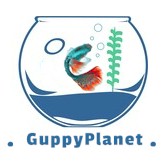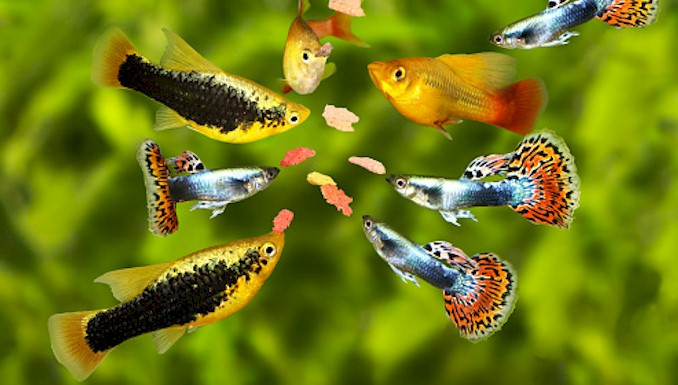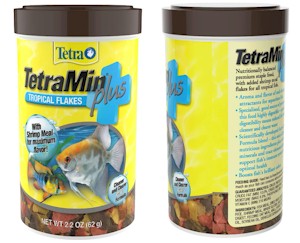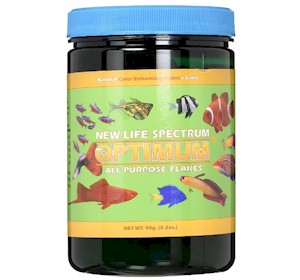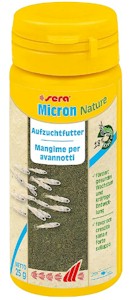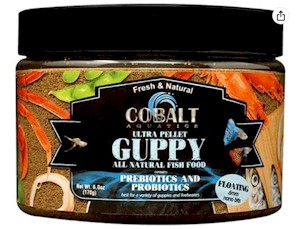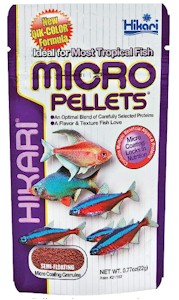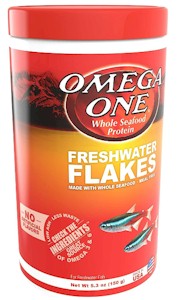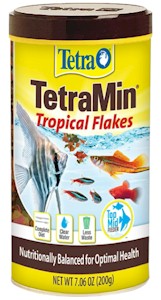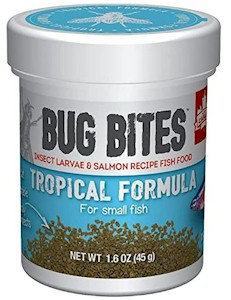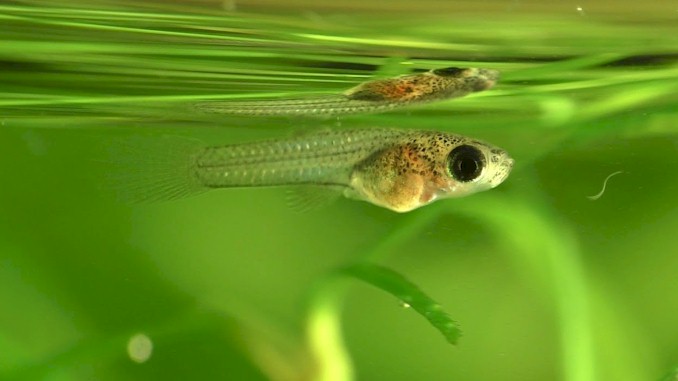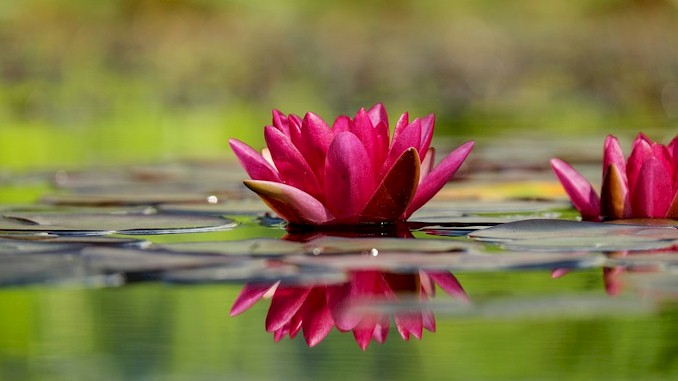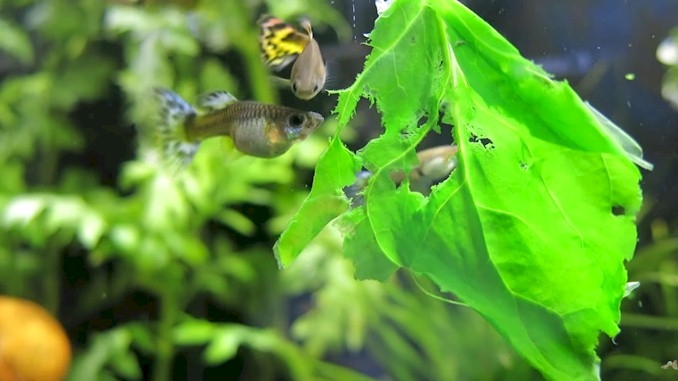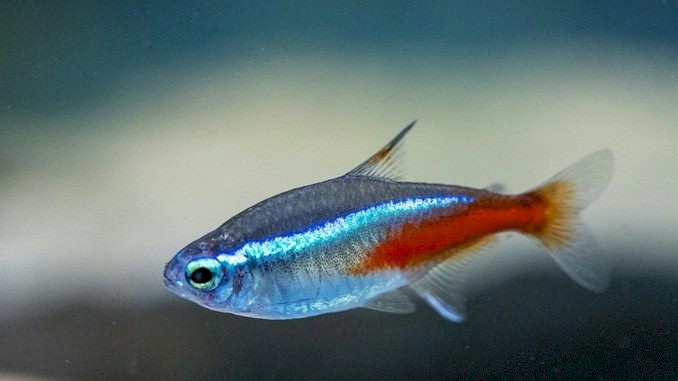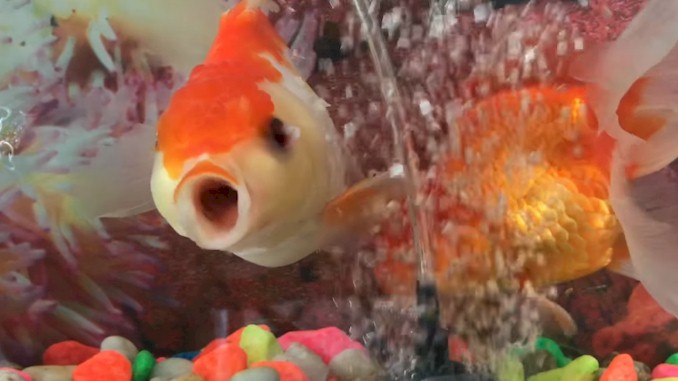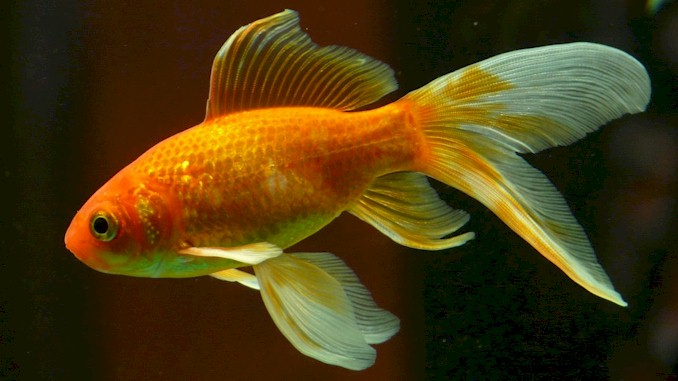Gourmet Fish Feeding: The Best Food for Your Guppies
If you are a guppy lover like me, you know how important it is to feed your fish the best food possible. Guppies are not only beautiful and colorful fish, but they are also very active and lively. They deserve a varied and nutritious diet that can support their health, growth, reproduction, and coloration. But with so many types and brands of guppy food available in the market, how do you choose the best one for your fish? After scouring the internet and conducting extensive research, I have compiled this comprehensive guide to help you choose the best food for your guppies.
The best food for guppies is a varied diet that includes high-quality flakes or pellets, supplemented with live or frozen foods such as brine shrimp, bloodworms, daphnia and mosquito larvae. These foods provide the essential nutrients, vitamins and minerals that guppies need for growth, color and health.
When you try to choose the best foods for your guppies, in addition to the basic principles, you need more practical details that can guide you go through the whole process. You are lucky, I’m going to share all that information with you in the following sections. Read on to get them:
The Best Guppy Foods: Our Top 10 Recommendations
With so many guppy foods available in the market, it can be hard to choose the best one for your fish. To help you out, we have reviewed some of the most popular and trusted guppy foods based on their ingredients, quality, customer feedback, and suitability for guppies. Here are our top recommendations for the best guppy foods:
1. TetraMin Plus Tropical Flakes:
This is one of the most widely used and trusted flake foods for tropical fish, including guppies. It has a high protein content of 46%, which is ideal for guppies’ growth and reproduction. It also contains natural color enhancers, such as shrimp and algae, to bring out the vibrant colors of your guppies. Moreover, it has a patented ProCare formula that boosts your guppies’ immune system and reduces stress. The flakes are small and easy to digest for your guppies, and they do not cloud the water.
2. Hikari Bio-Pure FD Brine Shrimp:
This is a freeze-dried food that contains 100% brine shrimp, which is one of the best live foods for guppies. Brine shrimp has a 60% protein content and 25% fat and carbohydrates3, which can enhance your guppies’ health and vitality. It also has natural astaxanthin, which can improve your guppies’ coloration. The freeze-drying process preserves the nutritional value and flavor of the brine shrimp, while eliminating any parasites or bacteria that may harm your guppies. You can feed this food as a treat or a supplement to your guppies’ staple food once or twice a week.
3. New Life Spectrum Optimum Flakes.
This is another high-quality flake food that has a 50% protein content, which is perfect for guppies’ growth and development. It also has a variety of natural ingredients, such as krill, squid, seaweed, garlic, spirulina, and fruit extracts, that provide vitamins, minerals, antioxidants, and probiotics for your guppies. It also has natural color enhancers that can make your guppies more vibrant and attractive. The flakes are micro-sized and easily digestible for your guppies.
4. Sera Micron Nature – Fry Food.
This is a specially formulated food for guppy fry (babies) that contains 55% protein content from high-quality sources such as fish meal, bloodworms, krill, tubifex worms, daphnia, and brine shrimp. It also has algae powder that provides essential fatty acids and carotenoids for your fry’s health and coloration. The food is in powder form that can be easily dispersed in water and consumed by your fry. It can also be used as a supplement for adult guppies to boost their fertility.
5. Cobalt Aquatics Ultra Guppy Nano Bits.
This is a pellet food that contains 44% protein content from fish meal, squid meal, shrimp meal, earthworms, bloodworms, spirulina algae, etc., which are all excellent sources of nutrition for your guppies. It also has prebiotics and probiotics that can improve your guppies’ digestion and immunity. The pellets are nano-sized (0.5 mm) and slow-sinking so they can be easily eaten by your guppies without wasting any food.
6. Hikari Micro Pellets
This is a small pellet food that is specially designed for smaller-mouthed tropical fish, such as guppies. It has a 43% protein content from fish meal, krill, squid, and spirulina algae, which are all excellent sources of nutrition for your guppies. It also has natural color enhancers and a patented Bio-Technology that boosts your guppies’ immune system and reduces stress. The pellets are micro-sized and slowly sinking, so they can be easily eaten by your guppies without wasting any food.
7. Omega One Freshwater Flakes
This is a flake food that is made with fresh seafood ingredients, such as salmon, halibut, shrimp, and kelp, which are rich in protein, omega-3 fatty acids, and natural pigments for your guppies. It also has garlic and spirulina algae that provide vitamins, minerals, antioxidants, and probiotics for your guppies. The flakes are crisp and firm, so they do not dissolve quickly in water and cause pollution. They are also low in starch and ash content, which can prevent bloating or constipation for your guppies.
8. TetraMin Tropical Flakes
This is another popular and trusted flake food for tropical fish, including guppies. It has a 46% protein content from fish meal and shrimp meal, which can support your guppies’ growth and reproduction. It also has natural color enhancers, such as carotene and shrimp shells, to bring out the vibrant colors of your guppies. Moreover, it has a patented ProCare formula that boosts your guppies’ immune system and reduces stress. The flakes are small and easy to digest for your guppies, and they do not cloud the water.
9. New Life Spectrum Small Fish Formula
This is a pellet food that is specially formulated for small fish species, such as guppies. It has a 50% protein content from high-quality sources such as krill, squid, seaweed, garlic, spirulina algae, etc., which provide vitamins, minerals, antioxidants, and probiotics for your guppies. It also has natural color enhancers that can make your guppies more vibrant and attractive. The pellets are micro-sized and easily digestible for your guppies.
10. Fluval Bug Bites Tropical Formula
This is a granule food that is made with insect larvae as the primary ingredient, which is one of the most natural and nutritious foods for guppies. Insect larvae are rich in protein, omega-3 fatty acids, and natural pigments that can enhance your guppies’ appetite, growth, reproduction, immunity, and coloration. They also provide a complete amino acid profile that is essential for your guppies’ health. This food also contains additional protein from sources like whole salmon and added vitamins for optimal fish health. The granules are slow sinking and micro-sized, so they can be easily eaten by your guppies without wasting any food.
These are some of the best guppy foods that we recommend based on our research and experience. However, you should always check the ingredients list and feeding instructions before buying any food for your guppies. You should also vary their diet with different types of foods to ensure they get all the nutrients they need.
Understanding the Guppy’s Diet: What You Need to Know
Guppies are small, colorful fish that require a balanced diet to maintain optimal health and longevity. As omnivores, they eat both plant and animal matter, and their diet should reflect this. While there are a variety of foods available for guppies, it’s important to understand their nutritional needs to ensure they’re getting the right balance of nutrients.
Guppies require a diet that is high in protein and fiber, with some fat and carbohydrates as well. Protein is essential for growth, while fiber helps to keep their digestive system functioning properly. Fats and carbohydrates provide energy and support other bodily functions.
It’s important to note that guppies have small stomachs and should be fed small amounts several times a day. Overfeeding can lead to digestive issues and poor water quality, so it’s better to err on the side of caution and feed less rather than more.
When selecting food for your guppies, it’s important to choose high-quality options that are formulated specifically for their nutritional needs. This includes both dry and frozen or live options. Dry food, such as flakes or pellets, is convenient and easy to store, while frozen or live options like brine shrimp or daphnia provide a more natural diet and can enhance their coloration.
In addition to their regular diet, guppies also benefit from occasional treats like bloodworms or mosquito larvae. These foods are high in protein and can help to vary their diet, but should be fed in moderation to avoid overfeeding.
Overall, understanding the nutritional needs of your guppies and providing them with a varied and balanced diet is essential for their health and well-being. In the following sections, we’ll explore the different types of food available for guppies, what to look for in high-quality fish food ingredients, and our top recommendations for the best guppy foods on the market.
Types of Food Available for Guppies: A Comprehensive Guide
When it comes to feeding your guppies, there are a variety of options available. These include dry foods like flakes and pellets, as well as frozen and live foods like brine shrimp and daphnia. Each type of food has its own benefits and drawbacks, so it’s important to understand the differences to choose the best option for your guppies.
Flakes
Flakes are one of the most common and convenient types of food for guppies. They are easy to find, store and feed. They come in different formulas that cater to different needs of guppies, such as color enhancement, growth, breeding or health. Flakes are also rich in protein, carbohydrates, fats, vitamins and minerals that guppies need.
However, flakes also have some drawbacks. They can lose their nutritional value over time if not stored properly. They can also dissolve quickly in water and pollute the tank if overfed. Flakes may not be enough to satisfy the natural instincts of guppies to hunt for live prey. Flakes may also lack some essential nutrients that guppies can only get from live or frozen foods.
Pellets
Pellets are another popular type of food for guppies. They are similar to flakes but have a more compact and dense shape. They can sink or float depending on their design. They also come in different formulas that suit different needs of guppies. Pellets are also rich in protein, carbohydrates, fats, vitamins and minerals that guppies need.
However, pellets also have some drawbacks. They can be too large or hard for some guppies to swallow or digest. They can also sink to the bottom of the tank and be ignored by some guppies who prefer to feed on the surface. Pellets can also dissolve quickly in water and pollute the tank if overfed. Pellets may not be enough to satisfy the natural instincts of guppies to hunt for live prey. Pellets may also lack some essential nutrients that guppies can only get from live or frozen foods.
Live Foods
Live foods are one of the best types of food for guppies. They are natural, fresh and nutritious. They stimulate the hunting behavior and appetite of guppies. They provide protein, enzymes and other nutrients that flakes or pellets may not have. Live foods include brine shrimp, bloodworms, daphnia, mosquito larvae and other small organisms that guppies love to eat.
However, live foods also have some drawbacks. They can be expensive, hard to find or maintain. They can also carry diseases or parasites that can infect your guppies or tank. Live foods can also spoil quickly if not used or stored properly. Live foods should be fed sparingly and as a supplement to flakes or pellets.
Frozen Foods
Frozen foods are a good alternative to live foods for guppies. They are convenient, safe and nutritious. They retain most of the benefits of live foods without the risks of diseases or parasites. Frozen foods include brine shrimp, bloodworms, daphnia, mosquito larvae and other small organisms that guppies love to eat.
However, frozen foods also have some drawbacks. They can be expensive or hard to find in some areas. They can also lose some of their nutritional value over time if not stored properly. Frozen foods should be thawed before feeding to avoid digestive problems for your guppies.
Vegetables
Vegetables are another type of food that you can offer your guppies occasionally. They are high in fiber and antioxidants that can help your guppies digest their food better and prevent constipation. Vegetables include cucumber, zucchini, lettuce, spinach and other leafy greens that guppies can nibble on.
However, vegetables also have some drawbacks. They can be too large or tough for some guppies to eat or digest. They can also rot quickly in water and pollute the tank if overfed. Vegetables should be cut into small pieces and blanched before feeding to soften them up.
Here is a summary table of the different types of food available for guppies:
| Type | Pros | Cons |
|---|---|---|
| Flakes | Easy to find, store and feed; come in different formulas; rich in protein, carbohydrates, fats, vitamins and minerals | Can lose nutritional value over time; can dissolve quickly and pollute water; may not satisfy hunting instincts; may lack some essential nutrients |
| Pellets | Similar to flakes but more compact and dense; can sink or float; come in different formulas; rich in protein, carbohydrates, fats, vitamins and minerals | Can be too large or hard for some guppies; can sink and be ignored by some guppies; can dissolve quickly and pollute water; may not satisfy hunting instincts; may lack some essential nutrients |
| Live Foods | Natural, fresh and nutritious; stimulate hunting behavior and appetite; provide protein, enzymes and other nutrients that flakes or pellets may not have | Can be expensive, hard to find or maintain; can carry diseases or parasites; can spoil quickly; should be fed sparingly and as a supplement |
| Frozen Foods | Convenient, safe and nutritious; retain most of the benefits of live foods without the risks of diseases or parasites | Can be expensive or hard to find in some areas; can lose some nutritional value over time; should be thawed before feeding |
| Vegetables | High in fiber and antioxidants; help digestion and prevent constipation | Can be too large or tough for some guppies; can rot quickly and pollute water; should be cut into small pieces and blanched before feeding |
What Are High-Quality Fish Food Ingredients for Guppies?
Choosing high-quality fish food ingredients is essential for providing your guppies with a healthy and balanced diet. Here are some of the best ingredients to look for when selecting food for your guppies:
- Whole Fish or Fish Meal
Whole fish or fish meal is a high-quality source of protein that is essential for the growth and development of your guppies. Look for options that list whole fish or fish meal as the first ingredient on the label. These options are generally more nutritious than those that list fillers like corn or wheat as the first ingredient.
- Spirulina
Spirulina is a type of blue-green algae that is high in protein and provides a variety of vitamins and minerals. It can enhance the coloration of your guppies and support their immune system. Look for options that list spirulina as an ingredient on the label.
- Krill
Krill is a small, shrimp-like creature that is rich in protein and omega-3 fatty acids. It can improve the overall health of your guppies and support their immune system. Look for options that list krill as an ingredient on the label.
- Vegetables
Vegetables like spinach and spirulina are rich in vitamins and minerals that can support the overall health of your guppies. Look for options that list vegetables as an ingredient on the label. You can also consider feeding your guppies fresh or frozen vegetables like peas or zucchini as a treat.
- Vitamins and Minerals
Vitamins and minerals are essential for the growth and development of your guppies. Look for options that include a variety of vitamins and minerals on the label, including vitamin C, vitamin E, and calcium.
When selecting food for your guppies, it’s important to choose options that are high in protein and include a variety of vitamins and minerals. By providing your guppies with a healthy and balanced diet, you can help to ensure they are thriving and healthy.
Beware of Low-Quality Fish Food Ingredients: What to Avoid
Not all fish foods are suitable for guppies, and some may contain low-quality ingredients that can harm your guppies or reduce their quality of life. Low-quality fish food ingredients can cause various problems for guppies, such as poor growth, malnutrition, obesity, digestive issues, infections, and diseases. Therefore, it is important to read the ingredients list carefully and avoid fish foods that contain the following low-quality ingredients:
- Fish meal: Fish meal is a generic term that can refer to any type of ground-up fish or fish by-products. It is often used as a cheap source of protein in fish foods, but it can also contain harmful substances such as mercury, PCBs and antibiotics. Fish meal can also be low in essential amino acids and fatty acids that guppies need124. Instead of fish meal, look for fish foods that specify the type of fish used, such as salmon, herring or krill.
- Filler grains: Filler grains are non-aquatic ingredients such as wheat, corn, rice or soy that are added to fish foods to bulk up the product and reduce the cost. However, filler grains are not suitable for guppies’ digestive system and nutritional needs. They can cause bloating, constipation and obesity in guppies. They can also reduce the palatability and digestibility of the food124. Instead of filler grains, look for fish foods that contain aquatic plants and algae as sources of carbohydrates and fiber.
- Artificial colors: Artificial colors are synthetic dyes that are added to fish foods to make them more appealing to humans and fish. However, artificial colors can have negative effects on guppies’ health and behavior. They can cause allergic reactions, stress, aggression and hyperactivity in guppies. They can also interfere with guppies’ natural coloration and camouflage . Instead of artificial colors, look for fish foods that use natural pigments from plants and algae, such as beta-carotene, astaxanthin and spirulina.
- Preservatives: Preservatives are chemicals that are added to fish foods to extend their shelf life and prevent spoilage. However, preservatives can also be harmful to guppies’ health and immunity. They can cause oxidative damage, inflammation and organ dysfunction in guppies. They can also reduce the nutritional value and freshness of the food . Instead of preservatives, look for fish foods that use natural methods of preservation, such as freezing, drying or vacuum-sealing.
- Low-Quality Packaging: The quality of the packaging can also impact the quality of the fish food. Low-quality packaging can lead to exposure to air and moisture, which can cause the food to spoil and lose nutritional value.
- High Levels of Ash: Ash is a measure of the mineral content in fish food. While some ash is necessary for your guppies’ health, high levels can lead to kidney issues and other health problems. Look for options with a low ash content.
These are some of the low-quality fish food ingredients that you should avoid when feeding your guppies. For your guppies’ optimal health and happiness, you should always choose high-quality fish foods that contain natural and nutritious ingredients.
What to Look for in Guppy Food: Choosing the Right Nutrients
Guppies are omnivorous fish that need a balanced diet of both animal and plant sources to thrive. They also need a variety of nutrients to support their growth, health, color and reproduction. When choosing guppy food, you should look for the following nutrients:
- Protein: Protein is essential for guppies’ muscle development, tissue repair and immune system. It also helps guppies produce healthy eggs and fry. Guppies need about 40% to 50% of protein in their diet. You can provide protein from sources such as fish, shrimp, worms, insects and larvae.
- Carbohydrates: Carbohydrates are important for guppies’ energy production and metabolism. They also help guppies regulate their osmotic balance and water intake. Guppies need about 10% to 15% of carbohydrates in their diet. You can provide carbohydrates from sources such as aquatic plants, algae, kelp and vegetables.
- Fat: Fat is important for guppies’ energy storage and consumption. It also helps guppies absorb fat-soluble vitamins and produce hormones. Guppies need about 5% to 10% of fat in their diet. You can provide fat from sources such as fish oil, krill oil and flaxseed oil.
- Fiber: Fiber is important for guppies’ digestive health and waste elimination. It also helps guppies prevent constipation and bloating. Guppies need about 5% to 10% of fiber in their diet. You can provide fiber from sources such as algae, spirulina, wheat germ and vegetables.
- Vitamins: Vitamins are important for guppies’ various biological functions and processes. They also help guppies prevent diseases and infections. Guppies need a mix of vitamins in their diet from time to time, just like humans. You can provide vitamins from sources such as fish food pellets or flakes that are fortified with vitamins or natural foods that contain vitamins such as fruits, vegetables and algae.
- Minerals: Minerals are important for guppies’ bone health, muscle contraction, nerve transmission, enzyme activity and blood health. They also help guppies maintain their pH balance and electrolyte balance. Guppies need a mix of minerals in their diet from time to time, just like humans . You can provide minerals from sources such as fish food pellets or flakes that are fortified with minerals or natural foods that contain minerals such as shrimp shells, oyster shells and egg shells.
- Live Foods: In addition to dried or pelleted food, guppies can also benefit from live foods like brine shrimp or bloodworms. These foods provide essential nutrients and help stimulate natural feeding behaviors.
When selecting guppy food, it is important to choose a variety of options to ensure that your fish are getting a well-rounded diet. It is also important to avoid overfeeding, as excess food can lead to health problems like obesity and digestive issues.
Feeding a Varied Diet for Best Results: Tips and Tricks
Guppies are omnivorous fish that can eat a variety of foods, from flakes and pellets to live and frozen foods. However, not all foods are equally nutritious and beneficial for your guppies. To ensure your guppies have a healthy and balanced diet, you should follow some tips and tricks to feed them the best food possible.
- Choose high-quality flakes or pellets as a staple food. Flakes and pellets are convenient and easy to feed, but they can vary in quality and ingredients. Look for flakes or pellets that have fish meal as a primary ingredient, as this indicates a high protein content. Protein is essential for guppies’ growth and reproduction. Avoid flakes or pellets that have fillers like wheat or corn, as these can cause digestive problems for your guppies.
- Supplement with live or frozen foods occasionally. Live or frozen foods are more natural and closer to what guppies would eat in the wild. They also provide more variety and stimulation for your guppies, as they have to chase and catch their prey. Live or frozen foods such as brine shrimp, daphnia, bloodworms, white worms, and mosquito larvae are all great options for feeding your guppies. Brine shrimp is especially recommended, as it has a 60% protein content and 25% fat and carbohydrates, which can boost your guppies’ growth and health. However, live or frozen foods should not be given too often, as they can also carry parasites or bacteria that can harm your guppies. Once or twice a week is enough to supplement their staple food.
- Add some vegetables to their diet. Guppies also need some plant matter in their diet, as they can graze on algae and aquatic plants in the wild. Vegetables such as cucumber, zucchini, lettuce, spinach, or peas can be chopped up and blanched (boiled briefly) before being added to the tank. These vegetables can provide vitamins, minerals, and fiber for your guppies, as well as help prevent constipation. You can also add some live aquatic plants to your tank, such as java moss or hornwort, which can serve as both food and shelter for your guppies.
- Feed them small amounts several times a day. Guppies have small stomachs and fast metabolisms, so they need frequent feeding to stay healthy and happy. However, overfeeding can lead to obesity, water pollution, and disease. Therefore, you should feed them small amounts of food that they can finish within two minutes. You can feed them two to four times a day depending on their size and activity level. You should also remove any uneaten food from the tank after each feeding to prevent water quality issues.
Apart from the tips and tricks on what foods you should provide to your guppies, here are other tips about the way you should take to make your guppies more colorful, active, and lively:
- Offer a mix of foods: To ensure that your guppies are getting all the nutrients they need, offer a variety of foods, including pellets, flakes, frozen or live foods, and vegetables. This will help prevent nutrient deficiencies and promote healthy growth.
- Rotate foods: Rotating the types of food you offer your guppies can help prevent boredom and encourage natural feeding behaviors. Try offering different types of food each day or every few days.
- Avoid overfeeding: Overfeeding can lead to health problems like obesity and digestive issues. Offer small amounts of food at a time and remove any uneaten food from the tank after a few minutes.
- Supplement with live foods: Live foods like brine shrimp, daphnia, and bloodworms can provide essential nutrients and help stimulate natural feeding behaviors. However, be careful not to rely too heavily on live foods, as they may not provide a complete diet.
- Consider making your own food: If you’re feeling adventurous, consider making your own guppy food using fresh, whole ingredients. This can be a great way to ensure that your guppies are getting a well-rounded diet and can be tailored to their specific nutritional needs.
Which One Is Best? Comparing Different Types of Guppy Food
Now that we’ve covered the different types of guppy food available, the nutrients to look for, and the pros and cons of feeding a varied diet, it’s time to answer the ultimate question: which guppy food is the best? The truth is, there is no one-size-fits-all answer. What works for one guppy owner may not work for another, and what works for one guppy may not work for another. However, we can compare some of the most popular guppy foods on the market and discuss their benefits and drawbacks.
- Flake Food. This is one of the most popular and convenient types of guppy food that you can find in any pet store. Flake food is easy to feed and store, and it comes in different formulas and flavors to suit your guppies’ needs. Some flake foods are specially designed for guppies, such as TetraMin Plus Tropical Flakes or New Life Spectrum Optimum Flakes, which have high protein content and natural color enhancers. However, flake food also has some drawbacks. It can lose its nutritional value over time if not stored properly, and it can also dissolve quickly in water and cause pollution if overfed. Moreover, some guppies may not like the taste or texture of flake food and may spit it out.
- Pellet Food. This is another common type of guppy food that is similar to flake food but in pellet form. Pellet food is also easy to feed and store, and it has a longer shelf life than flake food. Some pellet foods are specially formulated for guppies, such as Hikari Tropical Fancy Guppy Fish Food or Cobalt Aquatics Ultra Guppy Nano Bits, which have small pellets that are suitable for guppies’ mouths and digestive systems. They also have high-quality ingredients that can improve your guppies’ health and coloration. However, pellet food also has some disadvantages. It can sink to the bottom of the tank and be ignored by your guppies if they prefer to feed on the surface. It can also swell up in water and cause bloating or constipation if overfed.
- Live Food. This is one of the best types of guppy food that can provide your fish with natural nutrition and stimulation. Live food includes various organisms that guppies would eat in the wild, such as brine shrimp, bloodworms, daphnia, tubifex worms, etc. Live food can enhance your guppies’ appetite, growth, reproduction, immunity, and coloration. It can also provide them with entertainment and exercise as they chase their prey. However, live food also has some disadvantages. It can be expensive and hard to find in some areas, and it can also carry parasites or diseases that may infect your guppies if not properly sanitized or quarantined before feeding.
- Frozen Food. This is a type of guppy food that is similar to live food but frozen to preserve its freshness and quality. Frozen food includes various organisms that are frozen shortly after being harvested or cultured, such as brine shrimp, bloodworms, daphnia, tubifex worms, etc. Frozen food can provide your guppies with similar benefits as live food but without the risk of parasites or diseases. It can also be stored for a long time in your freezer and thawed before feeding. However, frozen food also has some disadvantages. It can be expensive and hard to find in some areas, and it can also lose some of its nutritional value during freezing or thawing processes.
- Vegetable Food. This is a type of guppy food that consists of various plant matter that guppies would eat in the wild or in captivity, such as algae, spirulina tablets, veggie pellets, cucumber slices, zucchini slices, etc. Vegetable food can provide your guppies with essential fiber, vitamins, minerals, antioxidants, and carotenoids that can improve their digestion, health, and coloration. It can also prevent them from becoming constipated or developing nutritional deficiencies. However, vegetable food also has some disadvantages. It can be messy and cause pollution if overfed or left uneaten in the tank. It can also be ignored by some guppies if they prefer animal matter or processed foods.
When choosing the best guppy food for your aquarium, consider the specific needs of your guppies, your budget, and the quality of the ingredients. It’s also important to remember to provide a varied diet to ensure your guppies are getting all the nutrients they need.
